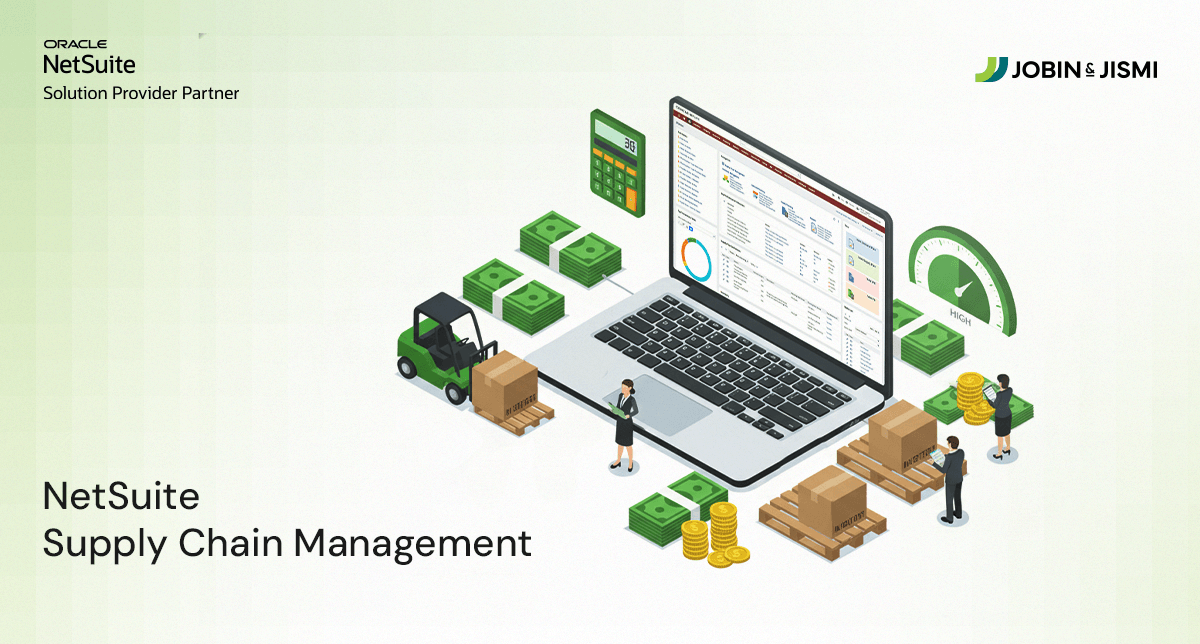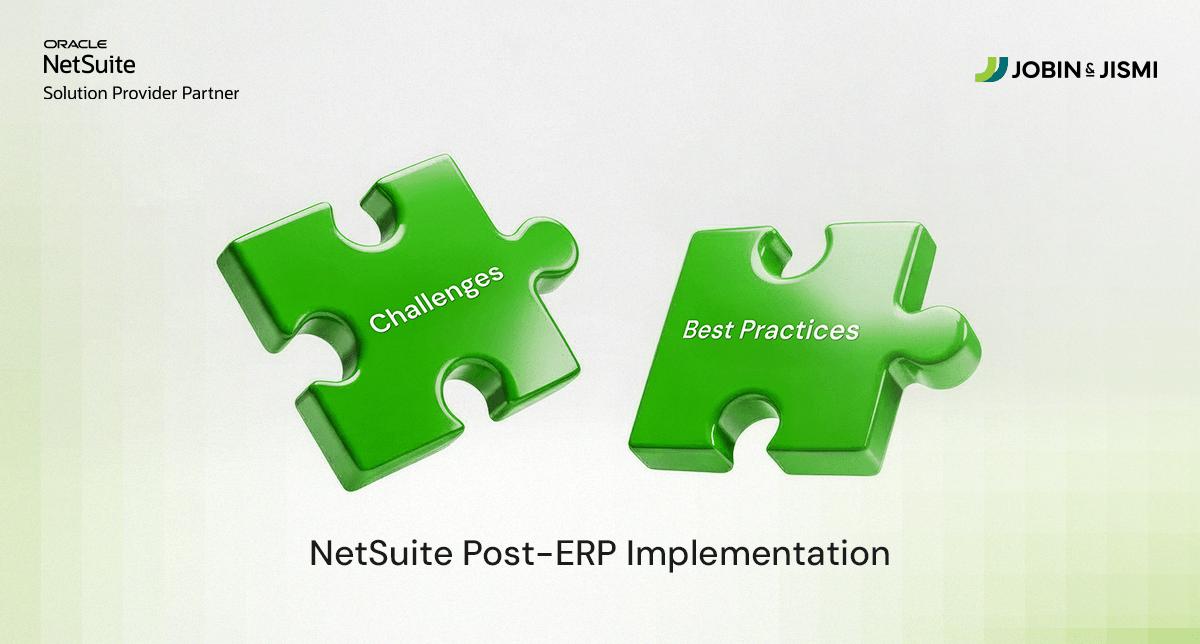Why NetSuite is the Best Cloud ERP?

NetSuite is the first and most reliable cloud ERP solution in a fast-changing world where technology reigns. Founded by Evan Goldberg and initially branded as Netledger in 1998, NetSuite transformed into the comprehensive platform we know today in 2002.
As the first cloud-based ERP, it has continuously set the standard for business management solutions. NetSuite is known for its advanced features and commitment to quality. This makes it a popular choice for businesses around the world.
The software enables enterprises to manage all processes in a single system. Therefore, many consider NetSuite to be the complete, comprehensive, riskless cloud ERP. There are many features that make NetSuite stand out. Let’s explore a few.
Integrating Business Processes Seamlessly
NetSuite excels in unifying diverse business functions into a single, cohesive system. By implementing NetSuite, businesses can integrate key processes including sales, finance, marketing, and purchasing into one platform. This eliminates the need for redundant data entry and reduces the risk of errors.
This real-time access to accurate data fosters better collaboration among departments and enhances overall productivity. Businesses can streamline operations, ensuring that everyone is on the same page and working towards common goals.
Scalability
NetSuite can accommodate businesses of any size, from small startups to large enterprises. This makes it a versatile option for companies at any stage of growth.
Oracle NetSuite can adapt to the growth of your business. It allows you to expand easily without being held back by outdated or limited software. This means you can scale your operations without any constraints. This ERP software provides the flexibility needed for your business to thrive and succeed.
As your business grows, so does the number of users and the volume of data that your ERP system must handle. NetSuite is designed to scale effortlessly in these areas. You can add new users and expand data storage as needed without compromising performance.
NetSuite keeps your ERP system in line with your goals as you enter new markets, expand your product line, or grow your workforce. This flexibility eliminates costly system checks and lets you focus on what matters: growing your business.
Better Decision Making with Advanced Analytics
Decision-making becomes more precise with NetSuite’s robust business intelligence tools. The platform provides detailed reports, charts, and analytics to help users understand revenue trends and operational metrics. This clarity enables companies to make informed decisions, leading to improved strategic outcomes and accelerated business growth.
Tailoring Solutions to Your Unique Needs
No two businesses are the same, and NetSuite acknowledges this by offering extensive customization options. Companies can tailor the software to fit their specific needs. This can be done by adding new features, integrating third-party apps, or configuring dashboards.
The ability to personalize dashboards allows users to prioritize the information and tools that are most relevant to their roles. This customization enhances productivity by providing quick access to critical data and functionalities.
This level of flexibility ensures that each organization can optimize NetSuite to align with its unique processes and objectives.
Ensuring Top-Notch Data Security
Operating in the cloud, NetSuite prioritizes enterprise-grade security. Data loss will no longer be a daunting factor for companies. Its advanced features, such as intrusion detection systems (IDS) and global data centers, provide robust protection against data loss and unauthorized access. Businesses can confidently manage operations from anywhere in the world, knowing that their data is secure and safeguarded.
Multilingual Capabilities
Nothing more disappointing than having an ERP that lacks multilingual capabilities. Using complicated ERP terms and industry jargon in a language that is not native can confuse users. This can make things more difficult for them.
NetSuite’s multilingual capabilities are a significant asset for international businesses. With support for mainstream languages including French, German, Spanish, Chinese (both traditional and simplified), Russian, Japanese, and more, it facilitates smooth communication and operational efficiency across borders. This feature is crucial for companies with a global presence, ensuring seamless interactions with customers and partners worldwide.
Flexible Price Packaging Based on the Business
NetSuite offers a tiered pricing structure designed to accommodate businesses of all sizes. NetSuite offers four tiers of services: Starter Package, BPO, mid-market, and Enterprise. These solutions can be customized to fit your company’s specific requirements. Pricing varies depending on various factors including the number of users and business needs, ensuring you get the best value for your money.
Biannual Upgrades
To keep pace with technological advancements and evolving business needs, NetSuite undergoes updates twice a year. These upgrades ensure that the system remains cutting-edge, incorporating the latest features and improvements to enhance its functionality and performance.
Robust Customer Support
NetSuite offers a range of support services, including technical assistance, user training, and implementation guidance. These services ensure that businesses can maximize the benefits of the ERP system.
The NetSuite user community and extensive online resources provide additional support, including best practices, forums, and knowledge bases that help users get the most out of the platform.
Who Benefits from NetSuite?
1. Small and Medium-Sized Enterprises (SMEs)
- Startups and Growing Businesses: NetSuite helps SMEs, especially startups and swiftly growing businesses, to optimize their operations as they grow.
- Family-Owned Businesses: These companies frequently use NetSuite to increase productivity and handle several tasks like accounting, inventory, and customer interactions on one platform.
2. Large Enterprises
- Global Corporations: Large multi-national companies use NetSuite to manage complex operations across multiple countries and regions. Its ability to manage multiple currencies, languages, and subsidiaries makes it ideal for global enterprises.
- Publicly Traded Companies: NetSuite’s strong financial management, compliance, and reporting features assist companies listed on stock exchanges to meet regulatory requirements.
3. Non-Profit Organizations
- Charities and NGOs: Non-profits use NetSuite to manage donations, grants, and fund accounting. To demonstrate to the donors and stakeholders their transparency and accountability, these organizations can make use of the ERP platform’s ability to track budgets, expenses, and program outcomes.
4. Industry-Specific Users
- Retail and E-commerce: NetSuite is a complete suite that includes order processing, inventory management, and customer relationship management (CRM). The financials, retailers, and e-commerce companies benefit from it. The omnichannel features of the platform facilitate the management of offline and online sales channels.
- Manufacturing: Production scheduling, supply chain management, inventory, and financials can all be managed using NetSuite. Complex procedures including work orders, bill of materials, and demand planning are supported by NetSuite’s manufacturing module.
- Professional Services: Businesses in consulting, legal, accounting, and other professional services use NetSuite for time tracking, project management, billing, and resource allocation to operate more efficiently.
- Healthcare and Life Sciences: In order to manage compliance, financials, inventory (including medical supplies), and customer data in a safe, integrated system, healthcare providers and life sciences organizations employ NetSuite.
5. Technology Companies
- Software and SaaS Providers: NetSuite is used by technology companies, especially those who sell software-as-a-service (SaaS) products, to handle client interactions, subscription billing, financials, and industry compliance with rules like GDPR.
- IT Services: NetSuite is used by IT service providers for managing service contracts, project timelines, billing, and customer communications. For these companies, the platform’s professional services automation (PSA) and CRM functionalities are especially beneficial.
6. Media and Publishing
- Content Creators and Publishers: Media and publishing companies use NetSuite for managing content production, distribution, financials, and customer subscriptions. The platform supports the complex revenue recognition needs typical of subscription-based business models.
7. Food and Beverage
- Restaurants and Food Manufacturers: Businesses in the food and beverage industry use NetSuite to manage supply chains, inventory, financials, and compliance with food safety regulations. The platform helps streamline operations from farm to table.
8. Wholesale Distribution
- Distributors: Wholesale distributors use NetSuite for inventory management, order processing, supply chain management, and financials. The platform’s ability to handle large volumes of transactions and integrate with third-party logistics providers is crucial for these businesses.
9. Energy and Utility Companies
- Renewable Energy Firms: Companies in the energy sector, particularly those focused on renewable energy, use NetSuite to manage projects, track assets, and handle financials.
Wrapping Up
NetSuite’s versatility makes it a valuable tool for a wide array of industries and business models.
If you need to learn more about the vast features offered by NetSuite ERP and its benefits, or how one can make use of it in business, feel free to contact our experts. We, at Jobin & Jismi are here to assist you.
on LinkedIn




